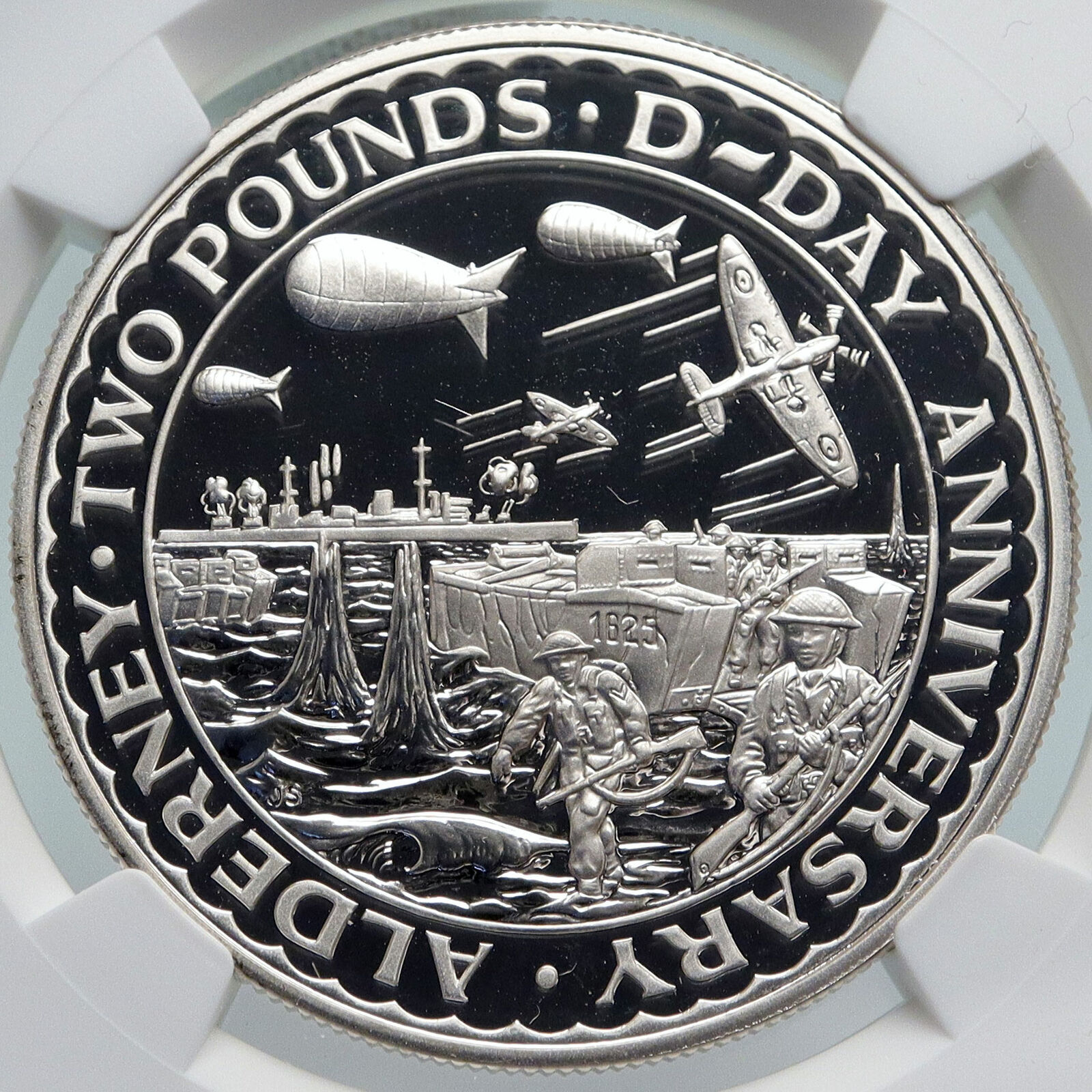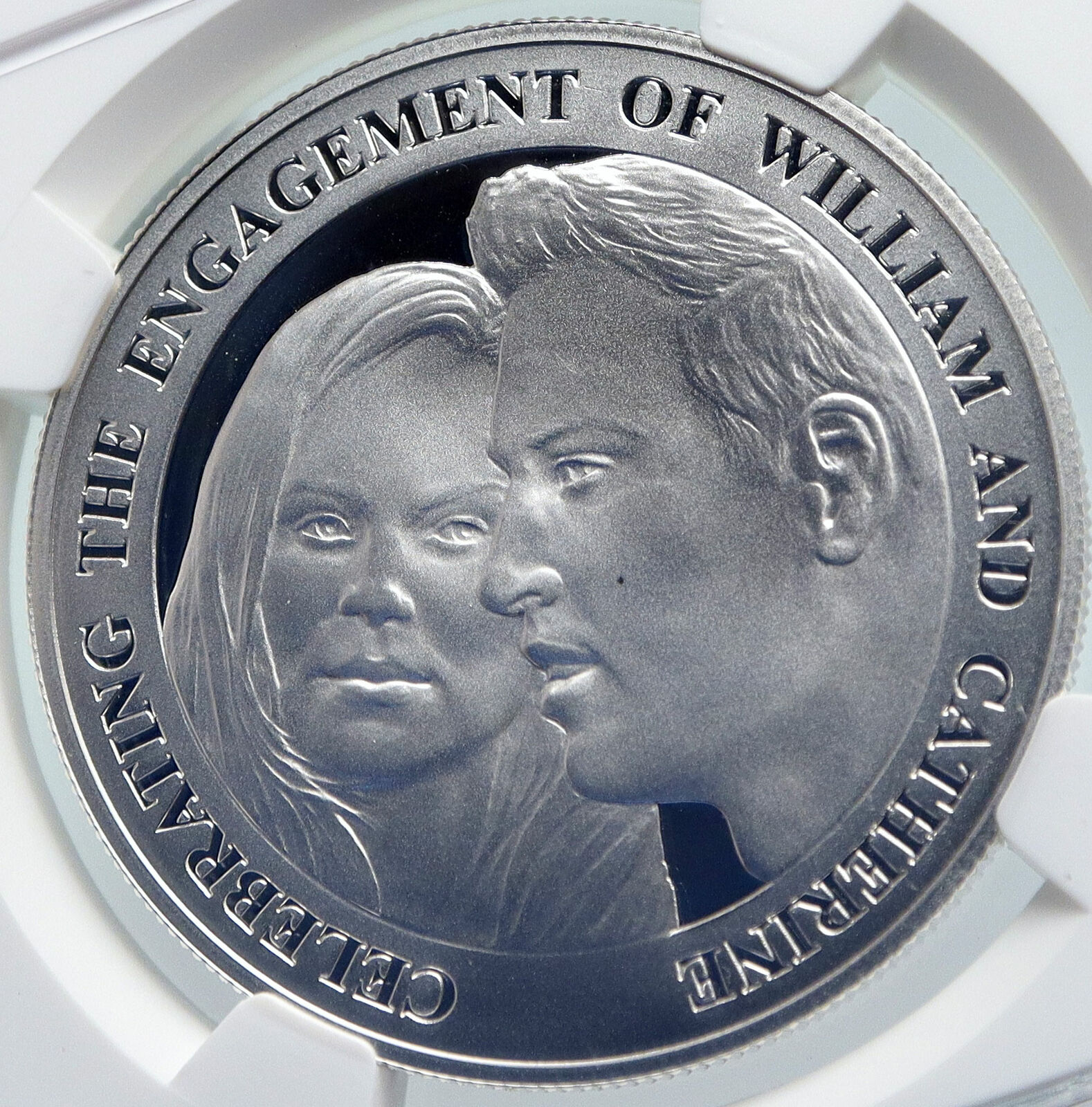|
Guernsey
1986 Commonwealth Games
1986 Proof Silver 2 Pounds 38.61mm (28.28 grams) 0.925 Silver (0.841 oz. ASW)
Reference: KM# 48b
ELIZABETH II BAILIWICK OF GUERNSEY, Queen Elizabeth II facing right with Guernsey crest to left.
XIII COMMONWEALTH GAMES : TWO POUNDS :, Eight shields around flag.
You are bidding on the exact item pictured, provided with a Certificate of Authenticity and Lifetime Guarantee of Authenticity.
 The 1986 Commonwealth Games (Scottish Gaelic: Geamannan a ‘Cho-fhlaitheis 1986) were held in Edinburgh, Scotland, between 24 July and 2 August 1986. They were the second Games to be held in Edinburgh. The 1986 Commonwealth Games (Scottish Gaelic: Geamannan a ‘Cho-fhlaitheis 1986) were held in Edinburgh, Scotland, between 24 July and 2 August 1986. They were the second Games to be held in Edinburgh.
Unlike the 1970 Games in Edinburgh, which were popular and successful, the 1986 Games are ill-famed for the wide political boycott connected with them and the resulting financial mismanagement.
Further controversy arose when it was revealed that through this much-reduced participation and the resultant decline in anticipated broadcasting and sponsorship revenues, the Organising Committee was facing a big financial black hole. The boycott ended any prospect of securing emergency government assistance. Businessman Robert Maxwell stepped in to offer funding, taking over as chairman; but although he promised to invest £2m, his contribution was just £250,000. On a budget of £14m, the Games opened with a deficit of £3m, which later grew to £4.3m, and instead of putting enough money into the event to save it, the new chairman of the Games asked creditors to forgo half the payment due to them to keep the event out of liquidation. The debt was finally paid off in 1989, with the city of Edinburgh losing approximately £500,000.
Several participants were excluded because they breached the amateurism rules, most notably lawn bowlers Phil Skoglund from New Zealand and Willie Wood from Scotland, both of whom have competed in subsequent Games.
 Guernsey is an island in the English Channel off the coast of Normandy. It lies roughly north of Saint-Malo and to the west of Jersey and the Cotentin Peninsula. With several smaller nearby islands, it forms a jurisdiction within the Bailiwick of Guernsey, a Crown dependency. The jurisdiction is made up of ten parishes on the island of Guernsey, three other inhabited islands (Herm, Jethou and Lihou), and many small islets and rocks. Guernsey is an island in the English Channel off the coast of Normandy. It lies roughly north of Saint-Malo and to the west of Jersey and the Cotentin Peninsula. With several smaller nearby islands, it forms a jurisdiction within the Bailiwick of Guernsey, a Crown dependency. The jurisdiction is made up of ten parishes on the island of Guernsey, three other inhabited islands (Herm, Jethou and Lihou), and many small islets and rocks. 

The German occupation of the Channel Islands lasted for most of the Second World War, from 30 June 1940 until their liberation on 9 May 1945. The Bailiwick of Jersey and Bailiwick of Guernsey are two British Crown dependencies in the English Channel, near the coast of Normandy. The Channel Islands were the only part of the British Isles to be occupied by the Wehrmacht (German Armed Forces) during the war.
Anticipating a swift victory over Britain, the occupiers experimented by using a very gentle approach that set the theme for the next five years. The island authorities adopted a similar attitude, giving rise to accusations of collaboration. However, as time progressed the situation grew gradually worse, ending in near starvation for both occupied and occupiers during the winter of 1944-45.
|





 The 1986 Commonwealth Games (Scottish Gaelic: Geamannan a ‘Cho-fhlaitheis 1986) were held in Edinburgh, Scotland, between 24 July and 2 August 1986. They were the second Games to be held in Edinburgh.
The 1986 Commonwealth Games (Scottish Gaelic: Geamannan a ‘Cho-fhlaitheis 1986) were held in Edinburgh, Scotland, between 24 July and 2 August 1986. They were the second Games to be held in Edinburgh. Guernsey is an island in the English Channel off the coast of Normandy. It lies roughly north of Saint-Malo and to the west of Jersey and the Cotentin Peninsula. With several smaller nearby islands, it forms a jurisdiction within the Bailiwick of Guernsey, a Crown dependency. The jurisdiction is made up of ten parishes on the island of Guernsey, three other inhabited islands (Herm, Jethou and Lihou), and many small islets and rocks.
Guernsey is an island in the English Channel off the coast of Normandy. It lies roughly north of Saint-Malo and to the west of Jersey and the Cotentin Peninsula. With several smaller nearby islands, it forms a jurisdiction within the Bailiwick of Guernsey, a Crown dependency. The jurisdiction is made up of ten parishes on the island of Guernsey, three other inhabited islands (Herm, Jethou and Lihou), and many small islets and rocks. 






